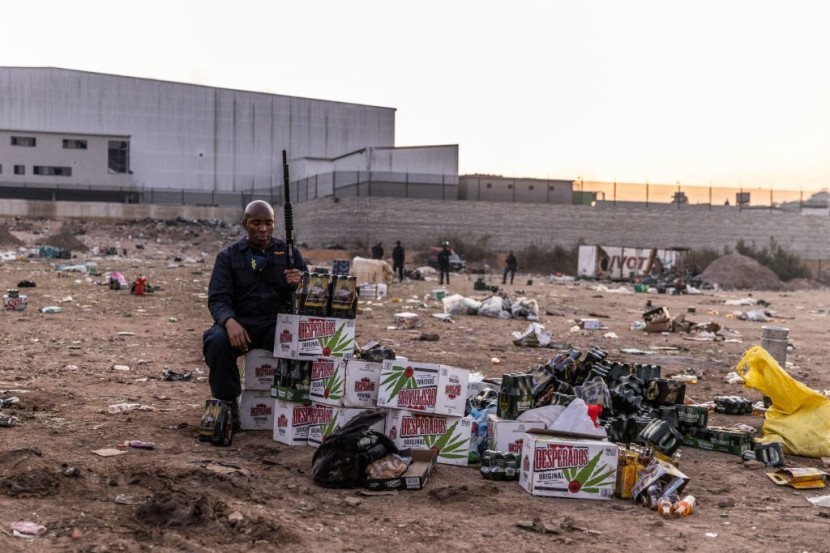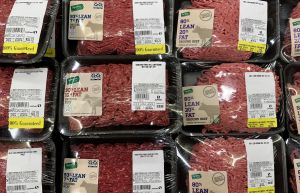
A rescue package for businesses and individuals impacted by last month's fatal riots is expected to cost 38.9 billion rands ($2.4 billion), according to South Africa's Treasury. Edgar Sishi, the interim head of the budget office, said the government would spend an additional 31.2 billion rands and provide 5 billion rands in tax relief, while 2.65 billion rands will be redistributed from within the budget.
At the briefing, Treasury Director-General Dondo Mogajane stated that the initiative would not require extra borrowing. South African Revenue Service Commissioner Edward Kieswetter noted that tax collections had surpassed projections, particularly in the mining and financial services industries. The increased revenue will be adequate to pay the relief package.
As coronavirus cases increased, the government imposed lockdown restrictions at the end of June, although they have since been relaxed. Arson and looting were sparked by former President Jacob Zuma's imprisonment last month; this resulted in significant damage to the country's economic recovery efforts.
Per Reuters, senior officials told a news conference that the initiatives would be supported by increased government income and budget reallocations, building on steps outlined by President Cyril Ramaphosa on Sunday. After Zuma's incarceration for contempt of court, sporadic riots began in his home province, which quickly intensified, with violence fueled by poverty and inequality that has remained for over three decades after apartheid ended.
Durban's week of anarchy
The temporary roadblocks and piles of trash in the port city of Durban have been cleaned away two weeks after South Africa was gripped by a frenzy of looting and arson - the worst displays of violence since the country's 1994 democratic transition. On the other hand, soldiers continue to monitor sensitive neighborhoods that have been ravaged by a week of chaos that has claimed the lives of over 300 people.
Sihle Zikalala, the governor of KwaZulu-Natal province, described the situation as "a catastrophe" during a crisis meeting with national and provincial officials. Zikalala has previously been chastised for asking that former President Jacob Zuma be released from prison to help calm the tensions, BBC reported.
Later, though, Zikalala was toeing the official government line, admitting that the violence in his province and Gauteng's economic heartland began as a mobilization around the previous president but quickly grew out of control.
After nearly three decades of democracy, riots across South Africa have raised worries about inequality and stability. Owners of looted stores in Soweto accuse the government of neglecting them. The cost of the disturbance, which overworked police, damaged infrastructure, and stopped local businesses across the country, is estimated to be billions of dollars.
According to experts, the riots were an outburst of long-simmering grievances among South Africans. Since the ruling party, the African National Congress was initially elected in 1994; extreme inequality has remained.
South Africa keeps a careful eye on how the law is being applied to individuals who were part of the riots. More than 250 individuals have been detained, with six facing accusations of incitement to violence. More arrests are likely to occur, according to the authorities.
South Africa's worst looting in history since apartheid
Last Monday, the smoldering wreckage of a cold chain warehouse in Hammarsdale, on Durban's western suburbs - a projected new logistical center for South Africa - sent trails of smoke into the sky. Any meat that had not been stolen was decaying inside after days of the worst looting in the post-apartheid democracy's history.
The economic effect is most evident in Hammarsdale, where looters targeted some of the many retail warehouses and factories that extend for miles along a major highway connecting Johannesburg and Africa's largest container port, Durban. Hopes for a revival in the area have been high since Cyril Ramaphosa took office as president in 2018, vowing to turn around the country's faltering economy.
Business organizations such as the South African Property Owners Association and Business Leadership South Africa have cautioned that the future is now in jeopardy. The impact on the province's gross domestic product - in terms of property damage, stock losses, and lost exports - is projected to be over 20 billion rands ($1.4 billion). Last year, South Africa's gross domestic product was around $300 billion, as per the Financial Times.
Related Article: How South Africa Riots Triggered With Former President Zuma's Imprisonment, Relation to Gupta Brothers
© 2026 HNGN, All rights reserved. Do not reproduce without permission.








